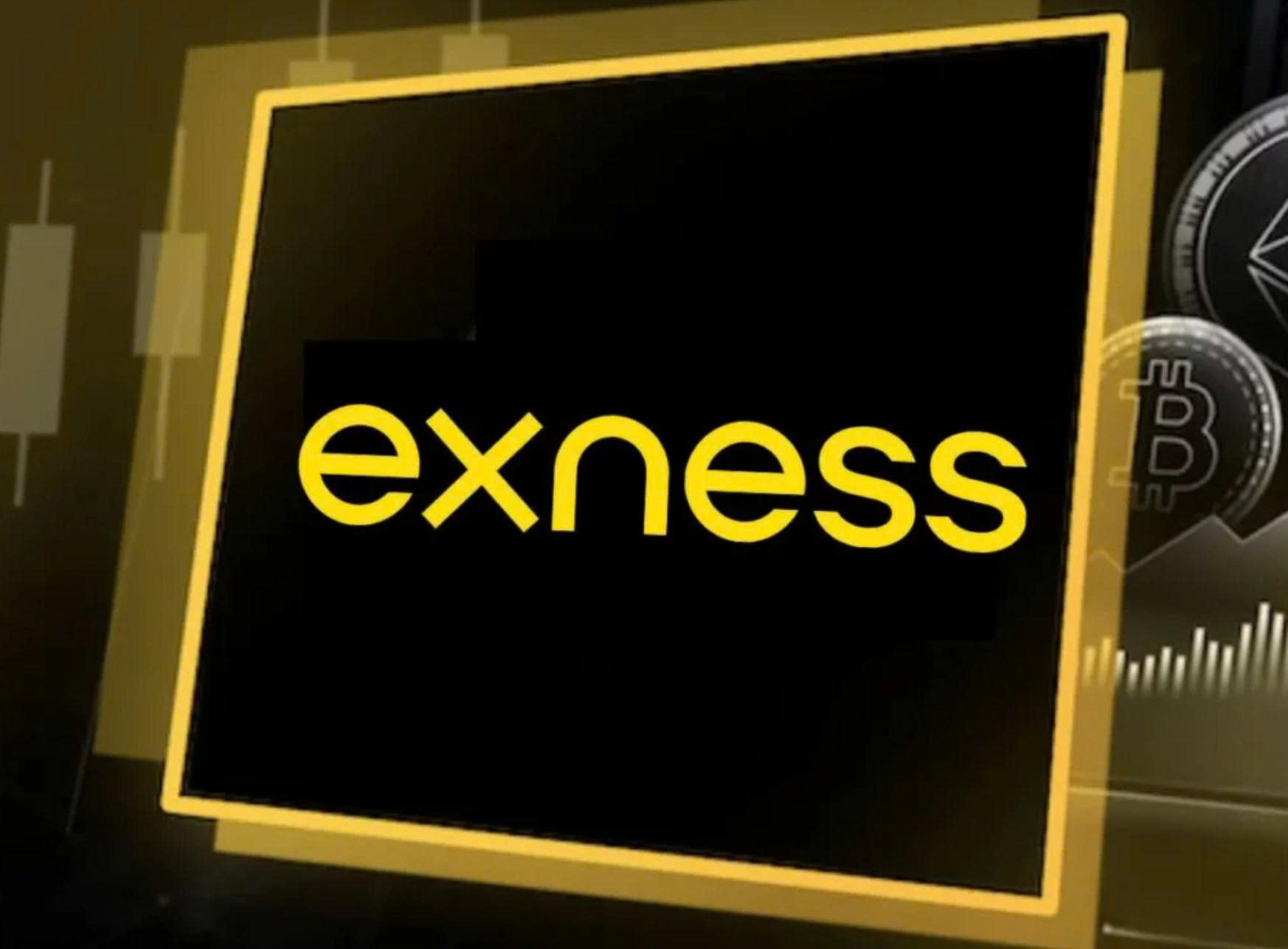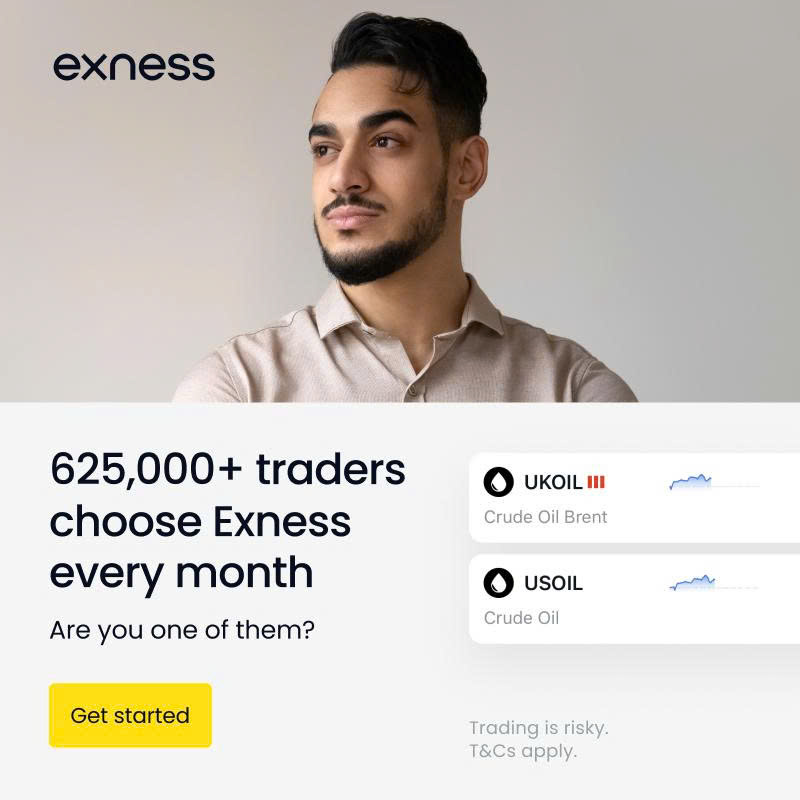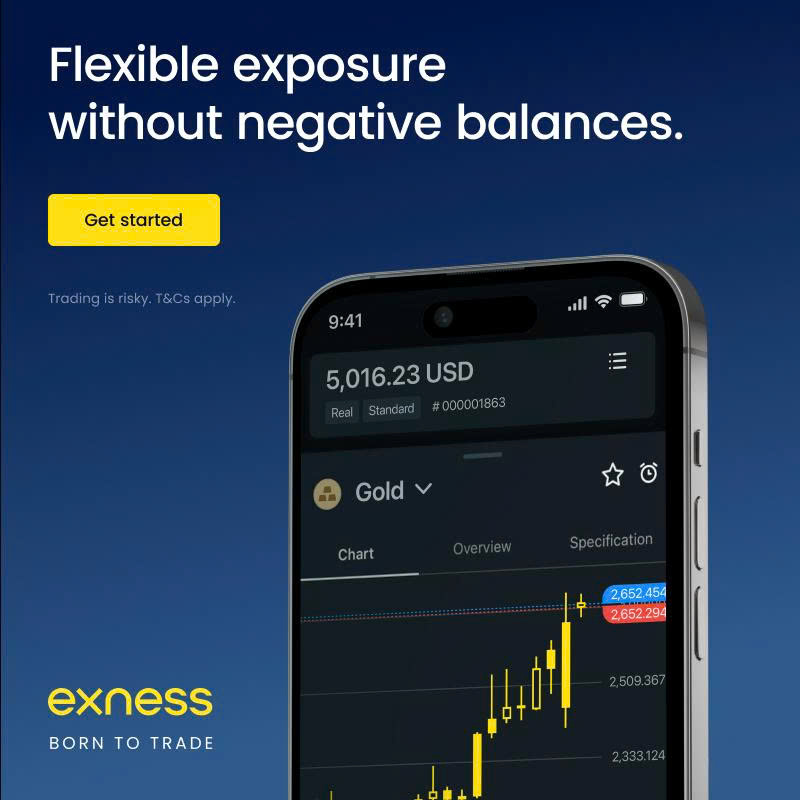
7 minute read
Exness Go is legal in India? A Comprehensive Guide for Traders
from Exness Go India
As online forex trading gains traction in India, platforms like Exness Go have become increasingly popular among traders seeking convenience and flexibility. Exness Go, a mobile trading app developed by the globally recognized broker Exness, offers a user-friendly interface for trading forex, commodities, indices, and cryptocurrencies. However, a critical question arises for Indian traders: Is Exness Go legal in India? This article dives deep into the legality of Exness Go, its features, regulatory considerations, and how Indian traders can use it responsibly in 2025.

✅ Trade with Exness now: Open An Account or Visit Brokers 👈
What is Exness Go?
Exness Go is a mobile trading application launched by Exness, a well-established forex and CFD broker founded in 2008. Designed for traders who prefer managing their investments on the go, Exness Go provides a seamless experience with real-time market data, fast trade execution, and access to a wide range of financial instruments. Its intuitive design caters to both beginners and seasoned traders, offering tools like customizable charts, risk management features, and 24/7 customer support.
The app integrates with Exness’s robust trading infrastructure, enabling users to trade INR-based currency pairs (e.g., USD/INR, EUR/INR), commodities like gold and oil, and even cryptocurrencies such as Bitcoin and Ethereum. With competitive spreads, low transaction fees, and support for Indian payment methods like UPI and Netbanking, Exness Go has gained significant attention in India’s growing forex trading community.
Forex Trading Regulations in India
To determine whether Exness Go is legal in India, it’s essential to understand the regulatory framework governing forex trading in the country. Forex trading in India is regulated by two primary authorities: the Reserve Bank of India (RBI) and the Securities and Exchange Board of India (SEBI). These bodies enforce rules under the Foreign Exchange Management Act (FEMA) to ensure transparency, protect investors, and maintain economic stability.
Key regulations for forex trading in India include:
INR-Based Currency Pairs Only: Indian traders are permitted to trade only currency pairs involving the Indian Rupee (e.g., USD/INR, EUR/INR). Trading non-INR pairs, such as EUR/USD or GBP/USD, is considered a violation of FEMA regulations.
SEBI-Regulated Brokers: Brokers offering forex trading services in India must be registered with SEBI to operate legally. This ensures compliance with local laws and provides traders with legal recourse in case of disputes.
Capital Movement Restrictions: The RBI imposes strict guidelines on the movement of funds abroad, particularly for speculative trading, to protect India’s foreign exchange reserves.
While SEBI oversees currency futures and options traded on recognized exchanges like the National Stock Exchange (NSE) and Bombay Stock Exchange (BSE), retail forex trading with international brokers like Exness operates in a legal grey area.
Is Exness Go Legal in India?
The legality of Exness Go in India depends on how traders use the platform and whether they comply with local regulations. Here’s a detailed breakdown:
1. Trading INR-Based Pairs: Exness Go allows Indian traders to trade INR-based currency pairs, such as USD/INR and EUR/INR, which is compliant with FEMA regulations. As long as traders stick to these pairs and use RBI-approved payment methods (e.g., UPI, Netbanking, or bank transfers), trading on Exness Go is considered legal.
2. Non-INR Pairs and FEMA Violations: Trading non-INR currency pairs, such as EUR/USD or GBP/JPY, is not permitted under Indian law. Engaging in such trades on Exness Go could lead to potential violations of FEMA, resulting in penalties or banking scrutiny. Indian traders must exercise caution and avoid non-INR pairs to remain compliant.

✅ Trade with Exness now: Open An Account or Visit Brokers 👈
3. Lack of SEBI Regulation: Exness, including its Exness Go app, is not registered with SEBI or regulated by the RBI. Instead, it operates under international regulatory bodies such as the Financial Conduct Authority (FCA), Cyprus Securities and Exchange Commission (CySEC), and Financial Services Authority (FSA) in Seychelles. While these licenses ensure global compliance and security, they do not provide Indian traders with the same legal protections as SEBI-regulated brokers like Zerodha or Angel One.
4. Payment Methods: Exness Go supports Indian payment methods like UPI and Netbanking, which are compliant with RBI regulations. However, using international wallets or cryptocurrencies to fund accounts may raise concerns under FEMA, as these transactions could be seen as non-compliant capital movements.
In summary, Exness Go is legal in India for trading INR-based currency pairs, provided traders adhere to FEMA and RBI guidelines. However, its operation in a regulatory grey area means traders must proceed with caution, especially when dealing with non-INR pairs or international payment methods.
Why Indian Traders Choose Exness Go
Despite the regulatory complexities, Exness Go remains a popular choice among Indian traders for several reasons:
· User-Friendly Interface: The app’s intuitive design makes it accessible for beginners while offering advanced tools like real-time charting and risk management features for experienced traders.
· Wide Range of Instruments: Exness Go provides access to forex pairs, commodities, indices, and cryptocurrencies, allowing traders to diversify their portfolios within the app.
· Competitive Pricing: With low spreads, minimal transaction fees, and no hidden charges, Exness Go is cost-effective for traders looking to maximize profits.
· Fast Execution and Withdrawals: Exness is known for its ultra-fast trade execution and instant withdrawal processing, which is a significant advantage in volatile markets.
· Global Regulation: Although not SEBI-regulated, Exness operates under multiple international licenses, ensuring a secure trading environment with features like fund segregation and advanced encryption.
Risks of Using Exness Go in India
While Exness Go offers numerous benefits, Indian traders should be aware of the following risks:
1. Regulatory Risks: Since Exness is not regulated by SEBI or the RBI, traders may have limited legal recourse in case of disputes or financial losses. The lack of local oversight increases the risk of trading with foreign brokers.
2. FEMA Violations: Trading non-INR pairs or using non-compliant payment methods could lead to penalties or frozen accounts under FEMA regulations.
3. Market Volatility: Forex and CFD trading carry inherent risks due to market fluctuations. Traders must use risk management tools, such as stop-loss orders, to mitigate potential losses.
4. Banking Scrutiny: Indian banks may flag transactions related to international forex trading, especially if funds are moved through unregulated channels.
To minimize these risks, Indian traders should consult with financial or legal advisors to ensure compliance with local laws and regulations.
How to Trade Responsibly with Exness Go in India
To use Exness Go legally and safely in India, traders should follow these guidelines:
Stick to INR-Based Pairs: Focus on trading currency pairs like USD/INR or EUR/INR to comply with FEMA regulations.
Use Approved Payment Methods: Fund accounts using UPI, Netbanking, or bank transfers to ensure compliance with RBI guidelines.
Declare Profits: Report trading profits to tax authorities to avoid legal issues.
Implement Risk Management: Use stop-loss and take-profit orders to protect against market volatility.
Verify Account Security: Enable two-factor authentication and other security features to safeguard your account.
Exness Go vs SBI-Regulated Brokers
While Exness Go offers global access and advanced features, SEBI-regulated brokers like Zerodha, Angel One, and ICICI Direct provide a fully compliant trading environment for INR-based pairs. These brokers operate under SEBI’s jurisdiction, offering greater legal protection but potentially fewer trading instruments compared to Exness Go. Indian traders must weigh the benefits of global access against the security of local regulation when choosing a platform.
Conclusion
Exness Go is a powerful and convenient mobile trading app that appeals to Indian traders for its ease of use, competitive pricing, and access to global markets. While it is legal to use Exness Go in India for trading INR-based currency pairs in compliance with FEMA and RBI regulations, its lack of SEBI regulation places it in a legal grey area. Traders must exercise caution, stick to permissible currency pairs, and use approved payment methods to avoid potential legal issues.
For Indian traders considering Exness Go in 2025, the key is to trade responsibly and stay informed about local regulations. By focusing on INR-based pairs, using secure payment methods, and implementing risk management strategies, traders can leverage Exness Go’s features while minimizing risks. For those seeking fully compliant options, SEBI-regulated brokers may be a safer choice. Always consult a financial advisor to ensure your trading activities align with Indian laws.
✅ Trade with Exness now: Open An Account or Visit Brokers 👈
Read more:

